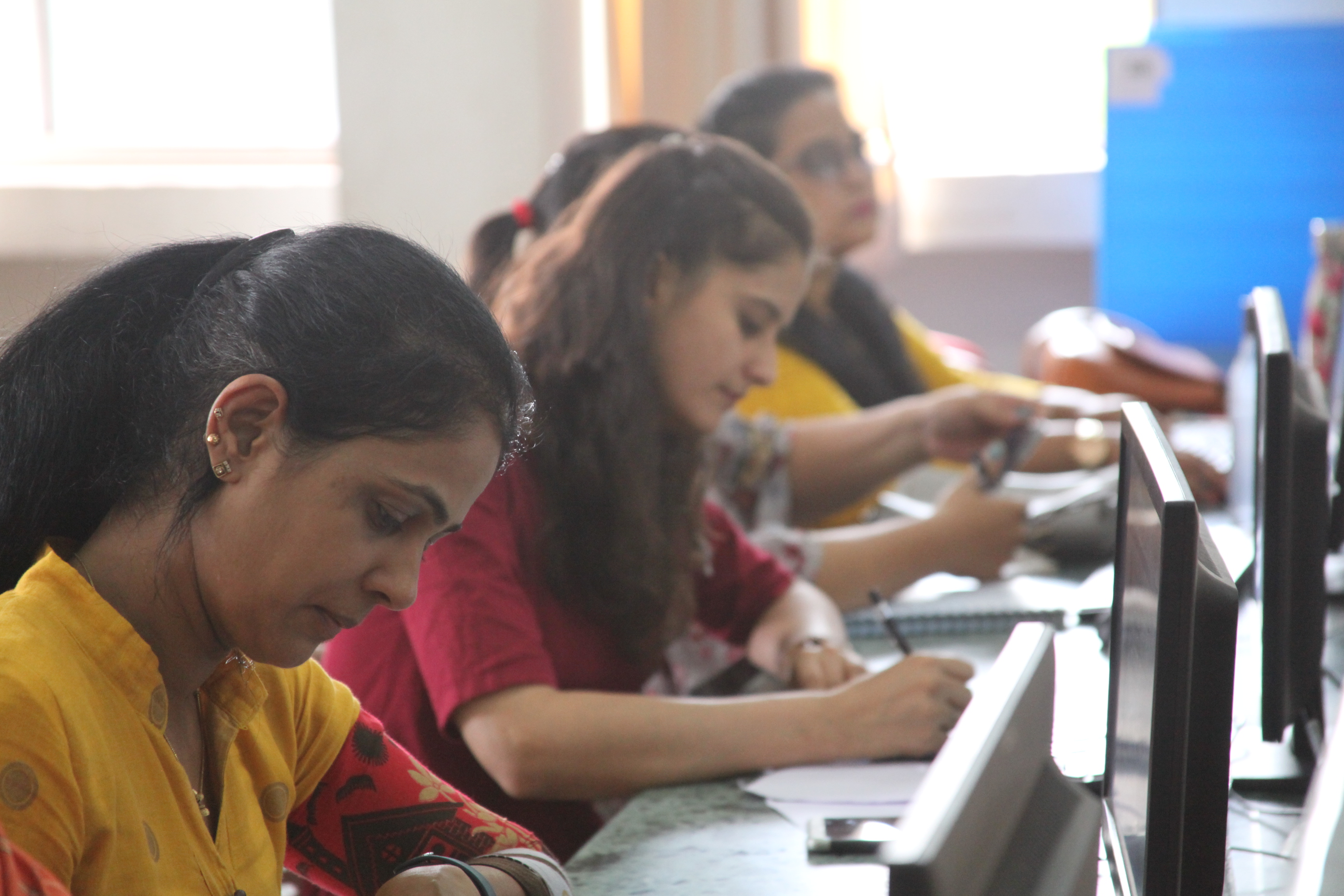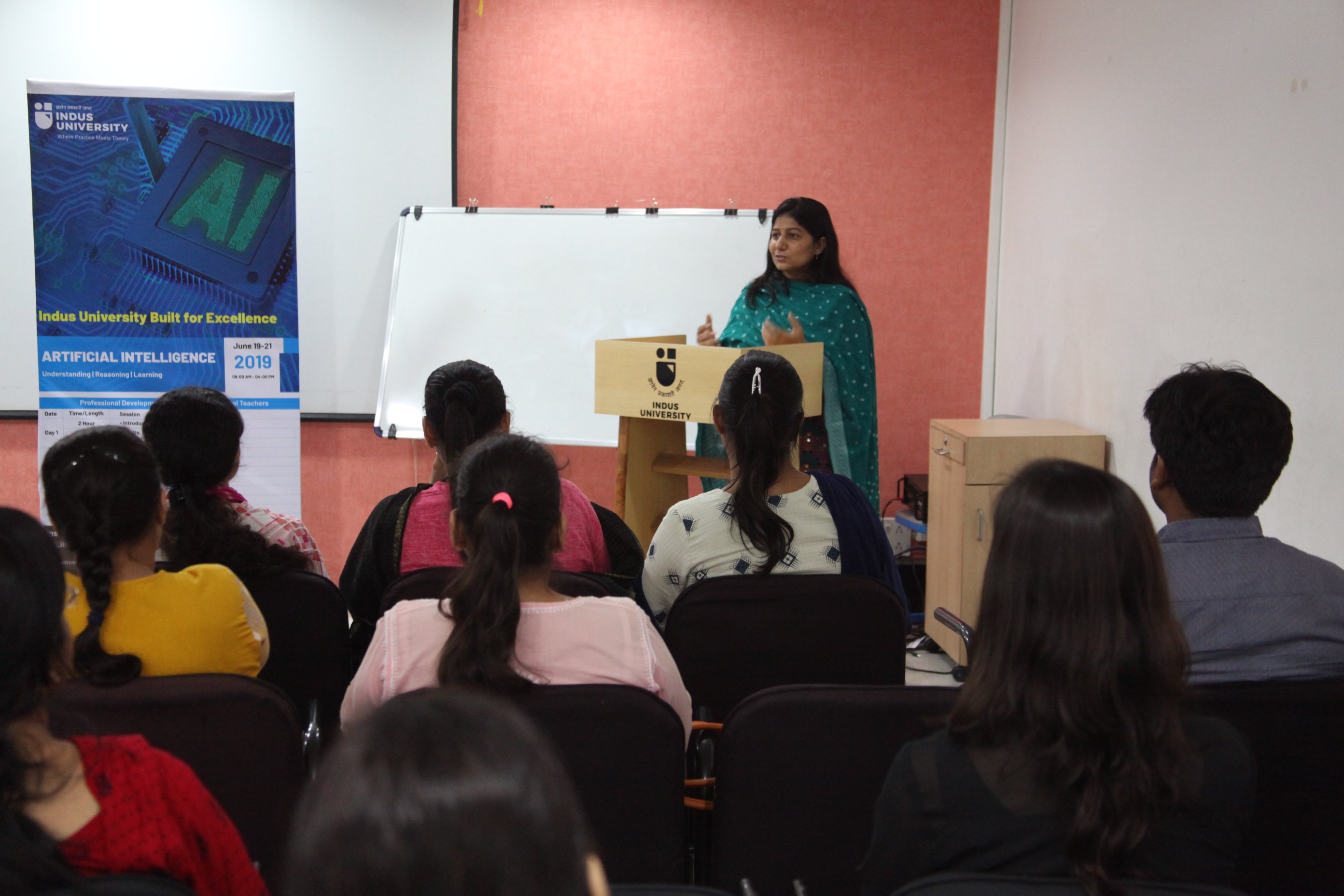Announcement
Get Ready for INDUS CUP 2K26! | Dates: 5–10 January 2026 | Stand a Chance to Win Cash Prizes up to ₹10,00,000!...Read more Get Ready for INDUS CUP 2K26! | Dates: 5–10 January 2026 | Stand a Chance to Win Cash Prizes up to ₹10,00,000!
We are excited to announce the Indus Hackathon 2025, an exhilarating one-day event organized by the CSE Department of Indus University....Read more We are excited to announce the Indus Hackathon 2025, an exhilarating one-day event organized by the CSE Department of Indus University.
26th ISTE Faculty Annual State Convention will be held at Indus University on April 27, 2023....Read more 26th ISTE Faculty Annual State Convention will be held at Indus University on April 27, 2023.
Get Ready for INDUS CUP 2K26! | Dates: 5–10 January 2026 | Stand a Chance to Win Cash Prizes up to ₹10,00,000!...Read more Get Ready for INDUS CUP 2K26! | Dates: 5–10 January 2026 | Stand a Chance to Win Cash Prizes up to ₹10,00,000!
We are excited to announce the Indus Hackathon 2025, an exhilarating one-day event organized by the CSE Department of Indus University....Read more We are excited to announce the Indus Hackathon 2025, an exhilarating one-day event organized by the CSE Department of Indus University.
26th ISTE Faculty Annual State Convention will be held at Indus University on April 27, 2023....Read more 26th ISTE Faculty Annual State Convention will be held at Indus University on April 27, 2023.

Indus University provides a 5 Year dual degree program, B.Sc. (Computer Application & Information Technology) + M.Sc. (Information Technology), that combines a Bachelor's degree in Computer Applications with a Masters degree in Information Technology. The dual degree B.Sc. (CA&IT) + M.Sc.(IT) is a full-time five-year post graduate program intended to develop students' software development abilities and improve problem-solving capacity. This innovative program prepares students with a foundation in computer applications and IT. The program is designed to satisfy the needs of ‘information technology experts’ required by the industries. The primary focus of the curriculum for this computer science degree is creating application software for varied uses.The course covers programming languages, databases, software development and essential IT principles. With experienced faculty members and state-of-the-art facilities, Indus University is the perfect place to embark on a rewarding journey towards a successful career in IT.
The fastest-growing sector in the industry is Information Technology and computer applications. The Dual Degree B.Sc. (CA&IT) +M.Sc.-IT degree program is designed for students who want to pursue a successful and promising career in information technology. Syllabus of the program combines both basic subject & advanced subjects like artificial intelligence, machine learning, robotics, Python programming, data science, digital logic and circuits, multimedia systems, software engineering, web design, digital image processing, Java, data communications etc.
The Admission Committee of Indus University will admit students based on merit. Students need to register themselves by online form.
Students can walk in and get admission to the course after interaction and approval by the admission committee.
For more information, call on +91 7622007507 or email admission.dcs2022@indusuni.ac.in.
Course Duration: 5 Years (10 Semesters)
Students who earned at least 45% in the Science, Commerce, or Arts subjects in their Higher Secondary (10+2) test. (Reserved categories receive a 5% relaxation).
The applicant ought to have taken the following courses in higher secondary school: English/Mathematics/Statistics/Accountancy/Physics/Computer (anyone subject)
Candidates in the Open Category: 45%
Candidates in the Reserved Category: 40%
The program's objective is to impart fundamental abilities needed by the sector through a process of active learning. This comprises programmes for personality development, team-building techniques, and audio/video presentations.
As this is the age of computer & IT, Scope of MSc Information Technology includes many opportunities in the industry. Some of the IT roles offered are Software Developer, applications programmer, maintenance engineer, database administrator, and software engineer.
The IT sector is growing at a very fast pace which no one has ever imagined, so it will provide a large number of opportunities to students with good skills. These job opportunities are offered not only in industries related to Information Technology but also in industries such as in Finance, Banking, Data Analytics, and in Academics. students can also pursue Ph.D in various specialisations to become a researcher, professor or scientist.
On the successful completion of a five-year dual degree program, you can make a career as:
The Training & Placement Department (T & P Dept.) at Indus University has a separate team that bridges two essential ends: academia and industry. It demonstrates a link between educational institutions, university departments, and businesses.
The focal point for career counselling for university students pursuing studies in all programmes and streams is the Training & Placement Department (T & P Dept.). It provides students with thorough career options by assisting them in choosing and pursuing their ideal vocations.
The program's objective is to impart fundamental abilities needed by the sector through a process of active learning. This comprises programmes for personality development, team-building techniques, and audio/video presentations.
As this is the age of computer & IT, Scope of MSc Information Technology includes many opportunities in the industry. Some of the IT roles offered are Software Developer, applications programmer, maintenance engineer, database administrator, and software engineer.
The IT sector is growing at a very fast pace which no one has ever imagined, so it will provide a large number of opportunities to students with good skills. These job opportunities are offered not only in industries related to Information Technology but also in industries such as in Finance, Banking, Data Analytics, and in Academics. students can also pursue Ph.D in various specialisations to become a researcher, professor or scientist.
On the successful completion of a five-year dual degree program, you can make a career as:
The Training & Placement Department (T & P Dept.) at Indus University has a separate team that bridges two essential ends: academia and industry. It demonstrates a link between educational institutions, university departments, and businesses.
The focal point for career counselling for university students pursuing studies in all programmes and streams is the Training & Placement Department (T & P Dept.). It provides students with thorough career options by assisting them in choosing and pursuing their ideal vocations.

An imaginative educational plan of this program will empower understudies..

An imaginative educational plan of this program will empower understudies..